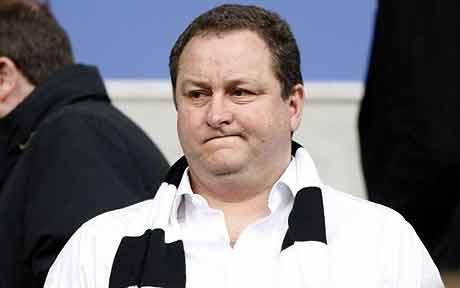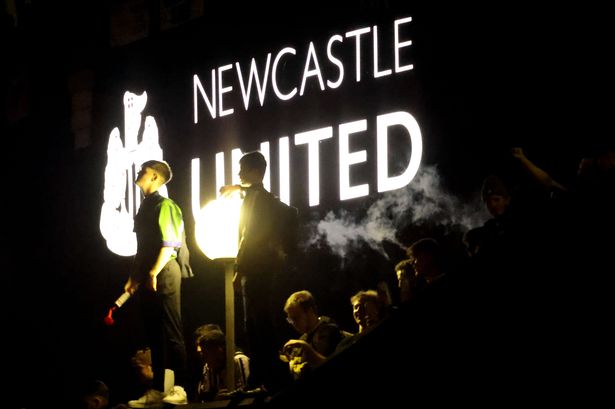Twelve months on from The Wall Street Journal’s revelation that Saudi Arabia’s Public Investment Fund (PIF) was involved in a potential takeover of Newcastle United, the club remains in Mike Ashley’s hands.
All of the key components appeared to be there: a willing and wealthy consortium acting as the buyer, an agreed sale price, and a seller desperate to make his departure from Tyneside. And yet, here we are.
While there are justified moral concerns relating to the Saudi regime, and the wrangle over stolen TV rights appears to have reached a resolution, it is the separation, or lack-of, between the PIF and the Saudi-state which seems to have caused the deal to stall.
— True Faith: Newcastle United Fanzine and Podcast (@tfNUFC) February 2, 2021
With the PIF set to secure an 80% share of Newcastle United as part of the deal (with Amanda Staveley’s PCP, and the Reuben Brothers, each set to receive a 10% share), the Premier League appeared keen to avoid a situation where one of its clubs might, essentially, become state-owned – a subtle distinction perhaps, but an important one. The Premier League wanted to know who exactly would be in control of Newcastle United if the takeover went ahead.
Whether Staveley’s consortium, and the PIF, failed to satisfy the Premier League, or whether the Premier League failed to be satisfied, remains a point of debate; but after weeks of waiting, the PIF appeared to have pulled out of the deal in July 2020, essentially nixing the whole thing.
That might have been the end of it. Previous takeover bids have certainly fallen flat far more more quickly than this one did. But there’s one, significant difference this time – Ashley has fought to keep the deal alive.
New online this AM – a Transfer Window Takedown from TF – https://t.co/Y4GhlIUGwV #NUFC
— True Faith: Newcastle United Fanzine and Podcast (@tfNUFC) February 2, 2021
It might seem like a strange turn of events for the billionaire when we consider Staveley herself once questioned whether Ashley was ‘really a true seller’, but now we find the 56-year-old, via his lawyers, taking the fight to the Premier League.
What’s different this time? Why does Ashley want to take the Premier League to arbitration over this deal, when he has let others fall by the wayside?
There’s no question this consortium has the funds to meet the agreed ‘305 million asking price, particular with the PIF involved. There’s every likelihood the sovereign wealth fund’s biggest immediate contribution to the deal could simply be the ability to pay Ashley in one lump sum – no messy financing structures or instalment payments. Ashley could get out and be done with it in one swoop, something which has to be appealing after 13 tumultuous years as Newcastle owner, and in the middle of an economic downturn due to the pandemic.
There’s also Ashley’s wider business interests to consider.
Thanks to Villa loyalist Rich – @villaparkpod for his time looking at Steve Bruce's tenure at Villa Park and the parallels at #NUFC – https://t.co/KwelxMOETD
— True Faith: Newcastle United Fanzine and Podcast (@tfNUFC) February 2, 2021
Crown Prince Mohammed bin Salman is attempting to reduce Saudi Arabia’s economic dependency on oil, and that means making the state more appealing to businesses and investors. Having seen Google and Amazon increase their interests in the state, the Crown Prince is looking to convince more multinational companies to setup regional headquarters in Saudi Arabia; but despite the country’s strong economy and sizeable population, its standard of living is still considered lower than some of its neighbours, such as the United Arab Emirates, which is tempering some interest.
Moves are afoot to address this, which would in turn create opportunities for retailers and the development of local amenities. It may still be hard to imagine a Sports Direct popping up on Riyadh’s high street, but the city already boasts a series of shopping centres even prior to these new infrastructure projects, which would suit Ashley’s Fraser Group (previously Sports Direct International), which includes not only the famous House of Fraser brand, but also Lonsdale, Slazenger, and Jack Wills among others. The group also has stakes in Mulberry, Agent Provocateur, and GAME, as part of a considerable, diverse portfolio.
Why not become a TF Podcast Patreon and get at loads of additional content? Intelligent, honest, passionate and articulate fan-created coverage of #NUFC – https://t.co/gNLnvOpKly
— True Faith: Newcastle United Fanzine and Podcast (@tfNUFC) February 1, 2021
Beyond opening new stores in Saudi Arabia (which may then be a potential springboard for the whole region), there may also be potential for Ashley to work with the regime in respect of future sporting events in the country – say, another high-profile boxing match, with the ring covered in Lonsdale adverts, just for example.
Equally, the Staffordshire native may seek to persuade the PIF to invest in the Fraser Group itself, perhaps in a similar way to the Qatar Investment Authority and Harrods (albeit the QIA bought Harrods outright in 2010). Again, at a time when many businesses are taking a hit due to the pandemic, that kind of investment could give Ashley’s empire a welcome financial boost.
TRUE FAITH – since 1999 The Alternative Voice of Newcastle United – now the only #NUFC fanzine – A5, 48-pages, pro-design, glossy paper and 100% fan content – support fanzine culture by buying a copy/taking out a subscription –https://t.co/qiJyd3HGST
— True Faith: Newcastle United Fanzine and Podcast (@tfNUFC) January 31, 2021
There are clear reasons for Ashley to want to pursue this deal then; the concern for Newcastle fans is that he is doing so at the expense of any other rival bid.
Rumours of additional interested parties continue to circle, though none have been as noisy as ClearTV Media Chief Executive, Henry Mauriss, once was, leaving fans asking whether Ashley’s fixation on a deal involving PIF is preventing other buyers from coming forward.
It’s possible, though Newcastle United have been up for sale for some time now, either explicitly or implicitly, and few bids have got beyond the first or second hurdle, and no-one, not even the current consortium, has gone through the Premier League’s Owner and Director Test.
Every matchday TF sends out its newsletter, THE SPECIAL – rammed with brilliant content – and its absolutely FREE.
Subscribe FREE for future issues here – https://t.co/kHtGDRcb99 #NUFC pic.twitter.com/e7IXlFlkJD
— True Faith: Newcastle United Fanzine and Podcast (@tfNUFC) January 31, 2021
It feels like conjecture, at best, to say Ashley’s determination to pursue this particular bid is stifling other interested parties from coming forward. With little serious movement on a sale prior to last year, despite various rumours, it feels like hearts – rather than heads – may be ruling the day here, as Newcastle fans desperately look toward the day when their club is no longer the unloved former play thing of an absentee owner.
Regardless of where you stand on the moral side of the debate, Newcastle’s best hope of a change in ownership appears to be Staveley’s consortium, and the PIF; at least this time, Ashley appears to be of the same mind – even if his reasons might be entirely selfish.
ROB McGREGOR’




